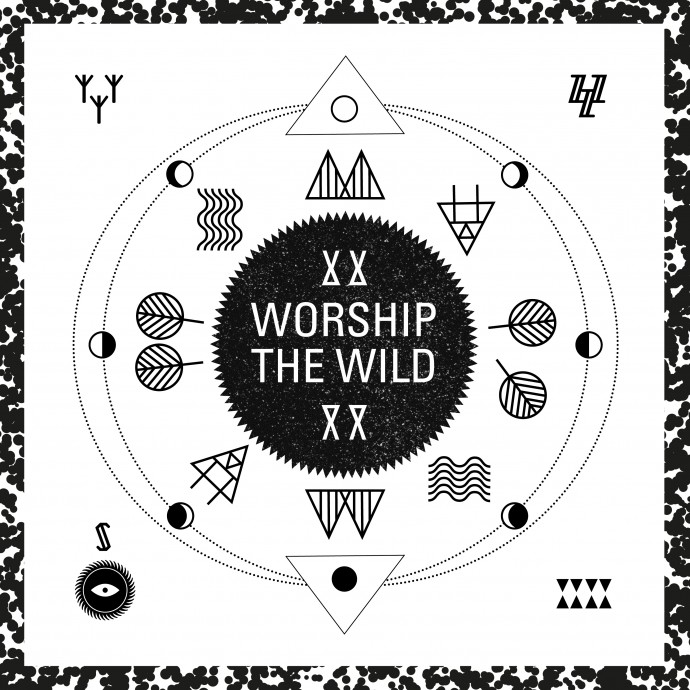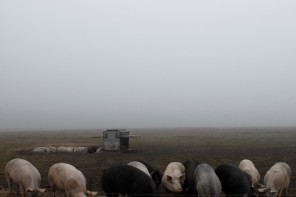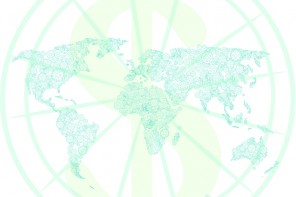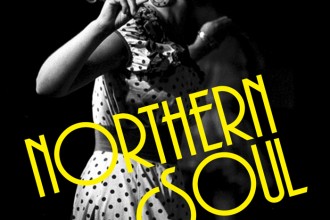Can you imagine treating a tree not like something that has been placed in nature for you to take, but like something that has its own life and rights? Can you imagine talking to a tree, asking it questions and waiting for it to give you a response? There was a time once, when people treated nature with the kind of respect that would today seem incomprehensible. Sensa Nostra talked with Haukur Halldórsson, an Icelandic artist and a Norse mythology expert, who places us back in times when nature was still one of the highest values existing.
The amount of respect people used to have for the environment they lived in would seem unimaginable, even ludicrous to many people today. In Norse countries, it was common to cut a tree down only with its permission. If people were in need of timber, they would take it only after consulting with the tree of which they wanted to use. Literally mouthing the words, “Tree, do you agree if I take your wood to build myself a table?” and then waiting for a response of agreement was the standard in the former times. People were surrounded by all the wood they could ever need and use, yet they would not exploit this fact. They took only as much as they needed from nature, without ever thinking about capitalizing on it.
We’ve traveled so far from the mindset people had in those days that today, even the idea of talking to a tree seems irrational. In a modern society, behavior like that would probably be considered abnormal. People got so used to thinking that supermarkets are providing their food and that construction companies are building their houses, that somewhere along the way we forgot that— not that much unlike the people in the former times did—we, too, still owe our survival to the earth. But the difference of the attitude towards nature cannot be just a result of people’s dependence on it, because we still depend on the nature heavily, even if only indirectly.
What has changed is our perception of the world. Today, people form their picture of reality based on the knowledge they gain in schools and from mass media, and the notion of respecting nature is not considered as essential as it used to be. But in former times, when people were so much more aware of the importance of their surroundings, it was due to the belief in the magical. It was mythology back then that was structuring, explaining and valuing the word around us.
Mythology is often a misunderstood word. It is an invented term, a made-up expression that doesn’t explain accurately what it really represented in the former times. Most people associate the word immediately with gods that formed it, but ultimately, mythology was the whole reality for people in the former times. The gods were only a small part of it. Even the gods represented something completely different than they do today. Gods back then were people, just as human and just a stupid as we human beings are. In the mythological stories, gods died just as humans do if they got hurt, and they were punished exactly as we are when they did something forbidden or immoral. Their purpose was not to judge, but to teach people: every mythological story carried a moral lesson for them to learn. Mythology wasn’t a religion, it was a mindset.
And the lessons were very simple: respect your fellow man, appreciate your surroundings, worship the nature that’s giving you life. I can’t say what living in that time would’ve looked like, but I am sure it was nowhere near the way we live nowadays, when values are completely different than what they used to be. We take our environment for granted, we’ve lost respect for it and we simply don’t understand how we should handle it anymore. But it’s not like that everywhere. There are some places where the respect for nature is still very much present, and, eloquently enough, those are also the places where the belief in the magical, the mythological, is still alive to some extent.
A lot of people in Iceland believe in elves. They believe there are elves in the woods, in mountains, in water—that elves live where the unspoiled nature still exist. And that belief changes the way Icelanders treat nature. If they believe there is an elf living in a mountain, that mountain is considered untouchable. They would not cut down the trees growing there, and they would not dig a tunnel through it to lay a road to the other side; they would rather take the longer way and lay the road around it. It doesn’t even matter if that is because of their belief in elves or because of the notion that nature is something to be worshiped and honored, because, ultimately, that is the same thing. Nature is the one that is magical, and that is what everybody should become more aware of in order to cherish it again with the respect it deserves.







